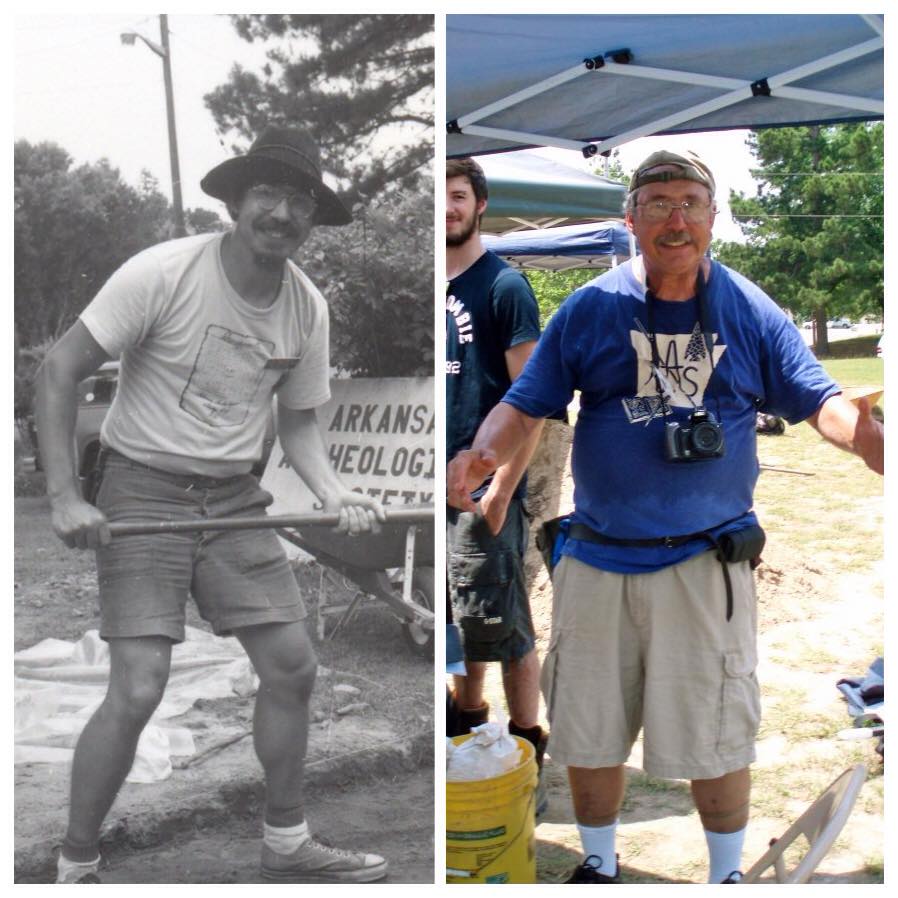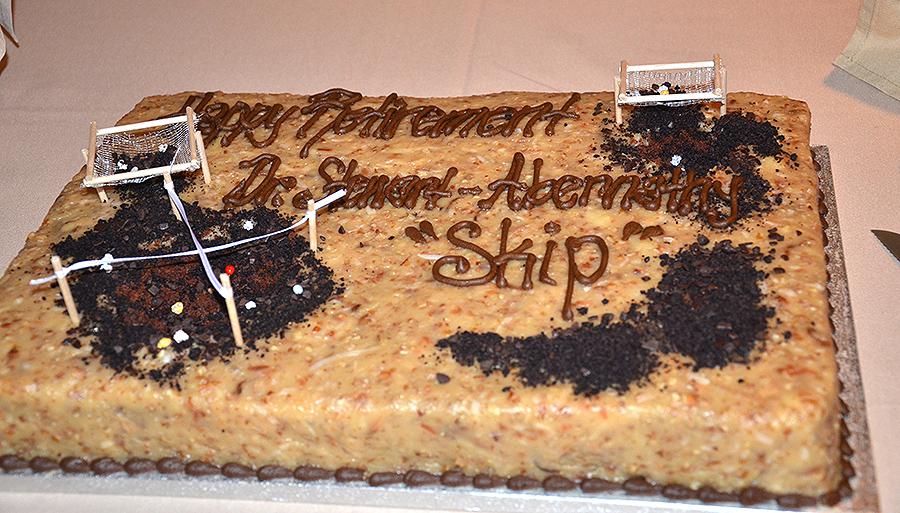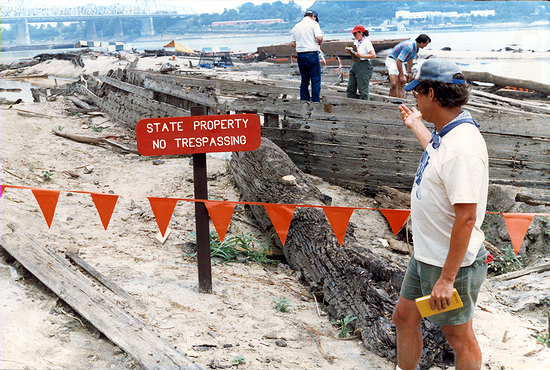The Art and Mystery of Arkansas’s Historical Archeology:
Dr. Leslie C. “Skip” Stewart-Abernathy Retires, June 30, 2015
Jamie C. Brandon
Skip was born Leslie C. Abernathy III on May 11, 1948, in Memphis, Tennessee. He grew up, however, in Jonesboro, Arkansas. In 1970, he received his B.A. from Arkansas State University with a major in History (and the award of Outstanding History Student). He entered the U.S. Army as a lieutenant and served in Strategic Intelligence offices at Fort Bragg and at the Military Assistance Command Headquarters in Saigon in 1971 and 1972.
In Unlocking the Past: Celebrating Historical Archaeology in North America (DeCunzo and Jameson, 2005), Skip writes:
I knew I wanted to be an archeologist when I was six years old, but somehow Egypt and Greece seemed too far off, and I really wasn’t interested in arrowheads. Nonetheless, I had a misspent youth because when I got my driver’s license, I spent weekends exploring the many abandoned farmsteads on Crowley’s Ridge north of my home in Jonesboro in northeast Arkansas. I was intrigued by all the effort of so many families who ended up leaving their marks behind in the form of farmhouses, outbuildings, and fields that were disappearing under scrubby vegetation. I came to understand how many North Americans had lived and worked on farmsteads such as these. The house I had grown up in, a “ranch house” in the suburbs, was actually the odd case. What seemed normal to me was a recent occurrence, the end result of people abandoning their farms and moving to towns. Eventually they or their children moved to the suburbs where I grew up.




